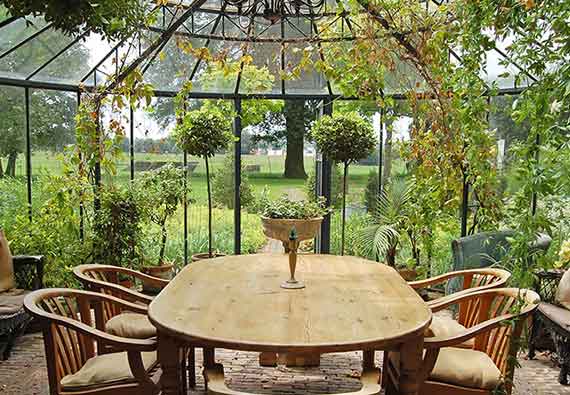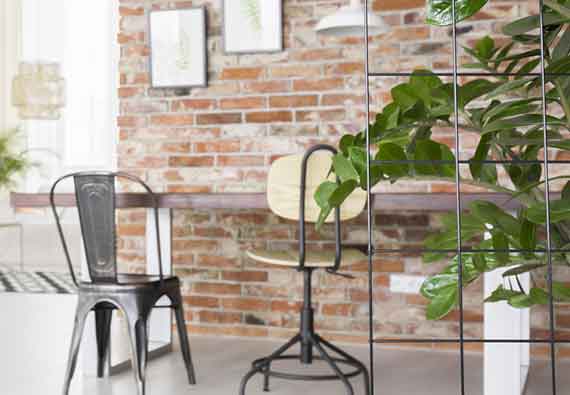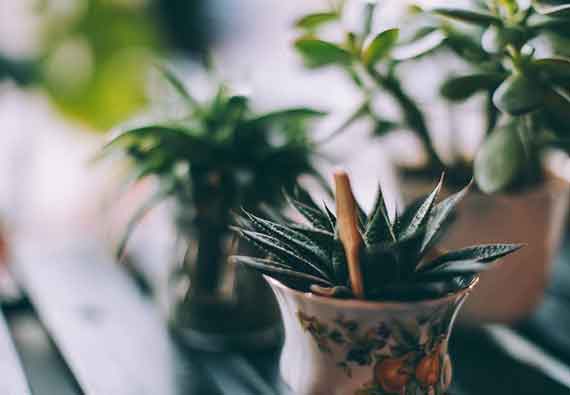The distinction, however, is that indoor plants or vegetables don’t typically send out signals that attract bugs that are just passing by like flowers that attract butterflies and bees for pollination purposes. The bugs you see or find on indoor gardens are often more likely than not brought in by the new plants you may occasionally add or introduce to your collection. The bugs are, therefore, imported as opposed to attracted by the plants.
Does Growing Vegetables Indoors Attract Insects?

Trying to get rid of pests for good?
Get a FREE Quote & BEST PRICE from a local exterminator
(866) 470-1609Available Next Day
No Obligation Assessment
Guarantee Results
Does growing vegetables indoors attract insects? The answer is: not entirely. Although sometimes it seems like they do.
Do Indoor Vegetables/Plants Harbor Bugs?
Absolutely. Any type of plant, except the insect-eating and insect-resistant varieties can and do harbor bugs. Once these bugs find your indoor garden, they will have discovered a vast network of protective foliage in the leaves, stems, and even roots of your plants.
Not only does this provide them with the food and sustenance that they need to thrive, it also keeps them safe from their natural predators that might be lurking just outside the door. If you intend to keep an indoor garden, it is advisable to thoroughly inspect the plants you bring into your home.
Look under the leaves, on the stem and everywhere else to see if there are any telltale signs of a bug infestation. Typically, you may see things like little webbings in the case of spider mite infestations or cocoons and maybe even bite marks on the stems. This doesn’t take much time but could save you a lot of grief once you eliminate any visible insects or bugs from your indoor vegetables.
You might be asking yourself: why then are indoor plant bug infestations such a big issue and nuisance if all it takes is a quick inspection and dealing with the right kind of grower? The truth of the matter is that, no matter how careful you are not to buy plants that are already infested by bugs, you cannot be a 100% sure that you are bringing in bug-free plants to your indoor garden.
This is because most bugs when in their egg or immature form are so tiny that you might not be able to see them with your naked eye. So, for all the inspections and care in dealing with the right grower, you might very well miss that little cluster of eggs or immature larvae hanging onto the leaves or stems just waiting for the right conditions to mature and start eating away at your plant.
Pests that Typically Infest Indoor Gardens
As mentioned earlier, the most common reason your indoor vegetables are bug infested is that you brought the bugs in with you. Either you bought some plants that were already infested by bugs or you introduced a new batch that is infested and that spread to the other plants.
This is, however, not a very common occurrence considering the fact that only a small percentage of potted plants bought from a professional grower will be infested with bugs. Most growers take pride in keeping their plants bug-free and they sell that fact to their customers.
If you do, however, still feel as if you always find bugs in your indoor garden or are concerned that your plants might be harboring some, then it is best to educate yourself about the typical types of pests that infest indoor gardens. For the most part, you will find one or two types of the following pests in your indoor garden:
- Spider mites
- Scale
- Thrips
- Mealy bugs
- Whitefly
- Aphids
- Fungus gnats
Fungus gnats are more common than the rest of the pests because most indoor farmers tend to keep the soil on their plants damp at all times. This is very understandable considering no one wants to see their indoor plants wither away for lack of water. But keeping the soil constantly damp and never letting it dry properly between watering attracts fungus gnats that will eat away at your plants.

Trying to get rid of pests for good?
Get a FREE Quote & BEST PRICE from a local exterminator
(866) 470-1609Available Next Day
No Obligation Assessment
Guarantee Results
How to Prevent Pests in Your Indoor Garden
One of the safest ways to ensure that you do not have pests in your indoor garden is to grow your plants from the seedling level. This will eliminate the need for buying fully grown plants from a grower that may or may not have a bug infestation problem. But for most indoor gardeners, this course of action is often too time-consuming and delicate to consider. It is, therefore, imperative to find other measures through which you can prevent pests from invading your indoor gardens. Here are some tips on how to do that.
Carry out daily monitoring of your garden: Vigilance is key when trying to keep bug infestations at bay. By monitoring your plants every day, you stand a good chance of catching these little buggers before they become a full-blown colony or bugs infesting your plants. Keep an eye out for telltale signs of infestations such as holes in the leaves and plant discoloration.
Use the right kind of system components: With indoor gardening, there are different types of system components required to make the whole thing work. By using the right kind of pots that are not only clean but also sanitized, you will have effectively prevented most insects and bugs from establishing or finding a favorable breeding ground in your indoor garden.
Maintain proper growing conditions: You need to maintain proper growing conditions as is required for the specific plants you have in your indoor garden. As mentioned earlier, keeping the soil damp at all times creates a favorable breeding ground for fungus gnats. It is the same case with most other pests. If you do not keep the right kind of growing conditions such as sufficient air flow, you will soon find yourself with an infestation in your hands.
Take good care of the plants: This includes watering them and removing dead leaves from the pots. You should also quickly isolate any plants that you feel may be infested.
Keep insect-eating plants: If you are not too keen on growing vegetables for consumption exclusively, then you might consider growing insect-eating plants on your indoor garden instead. Plants such as bromeliads, cissus, and aspidistra elatior are excellent examples or beautiful indoor plants that eat insects. This way, you will not be concerned about having a bug infestation in your indoor garden because the garden itself is the number one predator and, therefore, a threat to any bugs that might get bright ideas of living their days out in your garden.
How to Get Rid of Pests from Your Indoor Garden
If, however, you already have an infestation on your hands and would like to get rid of the bugs that have made your indoor garden their new home, then you need to know how to get rid of pests from your indoor garden. Here are some practical tips that should help:
Use Neem Oil:
Most indoor gardeners are not going to use toxic chemical bug sprays or insecticides on their indoor gardens. This is not only dangerous to the plants themselves, but also to anyone else living in the same environment. It is, therefore, prudent to use organic methods such as applying Neem Oil. This oil is derived from the Neem plant and is effective in fighting bug infestation by prevents the insects from laying eggs that keeping any new generations at bay.
Introduce beneficial bugs:
Although this might sound counterintuitive, intentionally introducing other bugs to your indoor garden might just be the answer you need. Insects such as ladybugs can effectively fight off aphids. These beneficial insects keep the bad types out by eating them. You can easily order live ladybugs online.
Use organic pest sprays:
You can easily order or create your own organic pests sprays that work and are not harmful to human beings. For the most part, soapy mixtures blended with some citrus can do the trick.
If, however, all this fails or you feel as if it is not adequate to fight off the infestation you may have on your hands, then the next best thing—in fact, THE best thing—is to call a pest management professional.
We are not only well versed with pest eradication, but we are also well equipped, well-trained, and highly professional when it comes to dealing with our customers. Do not let those pesky little pests ruin your perfectly good indoor vegetable garden. Give us a call today and we will help you eradicate any indoor pests quickly and efficiently. Our methods are not only organic but also highly successful. We have been doing this for years and, in that time, we have seen great success and have maintained excellent customer satisfaction.
Sources
https://www.quora.com/Do-indoor-plants-typically-attract-or-otherwise-harbor-bugs
https://cityroom.blogs.nytimes.com/2010/03/…/answers-about-growing-indoor-plants/
https://gardening.stackexchange.com/…/starting-growing-herbs-inside-is-there-anythi…
https://www.chowhound.com/…/seek-advice-preventing-insects-infesting-indoor-herb

Trying to get rid of pests for good?
Get a FREE Quote & BEST PRICE from a local exterminator
(866) 470-1609Available Next Day
No Obligation Assessment
Guarantee Results




